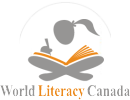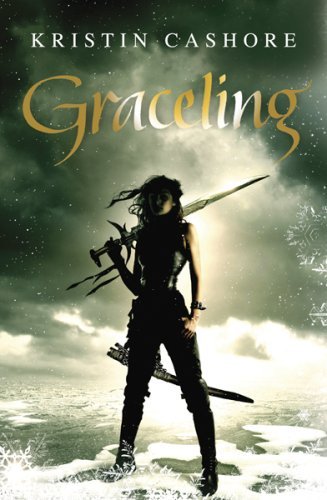
February 11th, 2012
The strongest female protagonist
(Hey, guys! This is also posted on Strange Chemistry’s site! Go check them out!)
The strongest female protagonist that I’ve encountered in some time is Katsa from Graceling. I know that many of you find her extremely hard to relate to, but that’s not the case for me. I love that she can never put her intense emotions aside. I love that she’s not poised or proper. I even love that she punches people in the face without thinking of the consequences. Basically, I love Katsa because she never censors herself. She never pretends to be someone she’s not, she never filters what’s on her mind before speaking, she never goes along with an idea if she disagrees with it. Katsa is just this really passionate person who never, ever holds back– and that’s what makes her so strong.
Who do you think is the strongest female protagonist in YA? Leave a comment and join the discussion.
I’ll keep you posted,
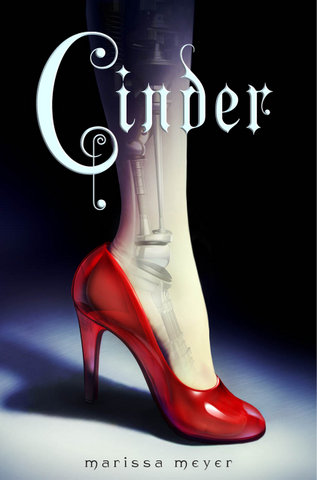
Ana's Rating
Readers Rating
Read the first five chapters of Cinder (for free) via Amazon
Listen to a clip of Cinder from Macmillan Audio
Humans and androids crowd the raucous streets of New Beijing. A deadly plague ravages the population. From space, a ruthless lunar people watch, waiting to make their move. No one knows that Earth’s fate hinges on one girl. . . .
Cinder, a gifted mechanic, is a cyborg. She’s a second-class citizen with a mysterious past, reviled by her stepmother and blamed for her stepsister’s illness. But when her life becomes intertwined with the handsome Prince Kai’s, she suddenly finds herself at the center of an intergalactic struggle, and a forbidden attraction. Caught between duty and freedom, loyalty and betrayal, she must uncover secrets about her past in order to protect her world’s future.
Picture Cinderella; blond-haired, blue-eyed, nice, dreamy, submissive, good at cleaning various household items…
Now picture her as a witty cyborg with major mechanic skillage, but minus the passive attitude. And the ‘ella’.
I think we all know who wins this battle.
And that’s Marissa Meyer’s delicious, light, airy, and addictive debut: Cinder.
First of all, this novel’s world building is an amazing combination of dystopia meets sci-fi meets fantasy. I, personally, have never met such a medley before, but I do hope we’ll meet again. Possibly in Cinder‘s sequel, Scarlet. New Beijing has pretty much everything someone like me could hope for; there’s a plague–Yes! I am such a sucker for horribly contagious, murderous diseases– that kills off all those unlucky enough to be infected, with no promise of a cure in the near future. Humans who would have died or lost limbs otherwise are transformed into cyborgs: second class citizens who are to be discriminated against. These cyborgs, along with androids, may be legally owned by conventional humans. An Emperor rules the Eastern Commonwealth, while a multitude of kings, queens and prime ministers rule the rest of the world. This story takes place in New Beijing, whose current Emperor is sick… And last (but not least) there is a colony, Luna, who lives on the Moon and possesses a science-like magic that allows it to beautify its appearances. I told you this book was good!
The characters in Cinder were just really… fun. Prince Kai is charismatic and fetching–everything you’d expect from a modern Prince Charming, really. Iko the android is funny and cute, faulty personality chip be darned. Cinder is sarcastic and levelheaded. I love that for most of the novel, she was not portrayed as that feeble little idealist that most associate with Cinderella nowadays. I mean, nothing says intimidating like a female mechanic who can hide wrenches in her thigh compartment. Especially one who is incapable of crying and blushing, and who can see your filed history whenever she looks at you.
Something else I really commend Ms. Meyer on is her modification of the classic YA love triangle. The romance in Cinder, though characterized by one character with two ‘love’ interests, would be better described as a courtship with a side of political intrigue. And we all know that revenge is best served cold…
As for the Lunar, I would read about people who can control their appearances and make others do things– hurtful things– using bio-electricity any day. I love that Meyer was able to take a magical, fantastical aspect of her novel and justify it with a scientific explanation. That alone makes Cinder‘s sci-fi angle worth reading to all of you who (like me) don’t usually like science-fiction. Of course, the whole main character being a cyborg does help. Nonetheless, I wish that Meyer would have delved into Luna’s history just a bit deeper. Why is there a colony on the Moon in the first place? Why do they want to wage war on Earth? How did they develop the ability to control bio-electricity? Such questions are left unanswered.
Another thing that I feel could be drastically improved in Cinder is the ending’s twist. Because, honestly, what would a fairy tale retelling be without an unexpected ending? But that was the problem. The ending was expected. I guessed the plot’s outcome about a quarter of the way through the book, and although this didn’t really interfere with my appreciation of Cinder, I feel as though if that twist were a just a little less obvious, I would have enjoyed this book quite a bit more.
Finally, I’m giving Cinder 4/5 stars. I wholeheartedly recommend this one for fans of fairy tale retellings, magical aliens, and heroines who can stash a multitude of weapons in their legs.
I’ll keep you posted,
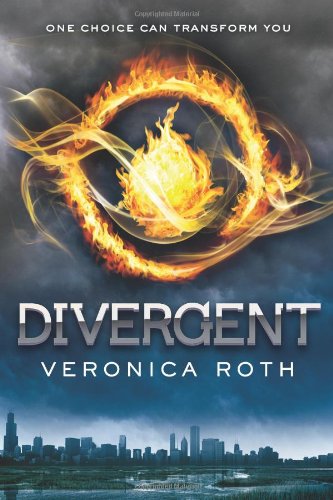
Ana's Rating
Readers Rating
In Beatrice Prior’s dystopian Chicago, society is divided into five factions, each dedicated to the cultivation of a particular virtue—Candor (the honest), Abnegation (the selfless), Dauntless (the brave), Amity (the peaceful), and Erudite (the intelligent). On an appointed day of every year, all sixteen-year-olds must select the faction to which they will devote the rest of their lives. For Beatrice, the decision is between staying with her family and being who she really is—she can’t have both. So she makes a choice that surprises everyone, including herself.
During the highly competitive initiation that follows, Beatrice renames herself Tris and struggles to determine who her friends really are—and where, exactly, a romance with a sometimes fascinating, sometimes infuriating boy fits into the life she’s chosen. But Tris also has a secret, one she’s kept hidden from everyone because she’s been warned it can mean death. And as she discovers a growing conflict that threatens to unravel her seemingly perfect society, she also learns that her secret might help her save those she loves… or it might destroy her.
Divergent is based on an idea that society can be divided into 5 groups whose goals are to ‘eradicate those qualities they believed responsible for the world’s disarray.’ There’s Candor, the honest; Amity, the peaceful; Abnegation, the selfless; Erudite, the intelligent; and Dauntless, the brave.
And then there’s the Divergent. The complicated.
In this world, children become adults at sixteen, when they are forced to choose whom they are going to become– forever. But–wait– you thought that sounded difficult? Really? Try mixing in political intrigue, clashes between factions, corrupt authority, threats of an uprising, cute older guys, paintball in the dark, and a battle between selflessness and courage– between selfishness and cowardice. Mmhmm. Told you it got better.
Never before has a book forced me to ask so many questions; “What if–? How does that–? What would I–? But she said that–? How do they survive for so–? Tori–? Marcus–? Four–? How do you even pronounce Eru–??”
Yep. Divergent is one of those controversial books.
I was shocked to find so many reviewers dissing Roth’s world building. They all seem to agree on the fact that a society ruled by five, and only five, particular traits is repellent, insane, and unlikely. The only thing that I have to say to this perspective is, well… yeah. Duh. It’s dystopia, people! Dystopia. And since when does dystopia entail utopia? Since when is any oppresive dystopia agreeable, or even plausible, to readers in this day and age, at all? Oh, yeah. Right. It isn’t. So the whole psycho-analysis of Roth’s factions and government and all that shiraz is really getting on my nerves.
Actually, I found the world building in Divergent to be pretty freaking amazing. I love the idea that our world could be divided (for the most part) into five different groups of people. Call me young, but I’ve never read anything like that before. I love the concept that a faction could be corrupt– but still stand for something. I love that prejudices based on colour and religion and caste are replaced by prejudices based on faction. I love the whimsical ferris wheels and the adrenaline-pumping zip lining and the thrill of jumping off of moving trains and the abhorrent mention of muffins.
Sure, Divergent left me with more questions left unanswered than explained (Did Chicago pull a Wither and simply decide to bomb the rest of the world?), but I feel as though the explanations that were provided almost made up for that.
Roth’s characters are very realistic. I loved every last one of them (Okay, that’s not true. I loved most of them.) I thought that Tris was a down-to-earth, kick-ass heroine. My favourite parts of Divergent consisted of her trying to prove herself to other Dauntless members/initiates and defending others. I was also enamored with the way she put things so simply. It was so… bold.
That is death– shifting from “is” to “was”.
~Tris
I equally enjoyed Will, Christina and Four as characters. Will was really cute, Christina was just entertaining, and Four was, well… brooding and mysterious and a man of very few words, but it was great to see an actual smart guy take the stage as male lead.
Tris and Four’s relationship was complicated. I loved that they pushed each to their limit and reminded each other of their strengths, but at some points, the ‘hot older guy’ thing was weird. However, I appreciated that Veronica didn’t incorporate a love triangle into Divergent. There’s already enough ruckus what with selflessness versus bravery, Erudite versus Abnegation, Peter versus everyone, Eric versus Four and Tris versus herself; no need to add a Four versus John-Mark.
In my opinion, Divergent has only one real downfall– and that’s the ending. Don’t get me wrong, it was just as action-packed and past-paced as the rest of the book, but it had a couple of issues. First of all, the onset was too fast. Reading it was like ‘Lalalalala, I’m so happy, yay me, let’s eat cake– oh wait we’re all gonna die!‘
Because they did die. So many of the characters just–poof–disappeared. Now, this is nerve-wracking, but understandable. Sometimes authors just have to kill off a bunch of characters for no apparent reason. What really got to me was Tris’s emotionless behavior towards these deaths. You’re reading the book, and suddenly someone’s killed, and you’re mentally breaking down because it was one of your favourite characters, but Tris just shrugs and moves on, because she’s strong. I find this quite hilarious, actually. Look, Tris, emotional strength is important– but sometimes admitting your vulnerability/weakness is strength. Breaking down or showing emotion isn’t always cowardice. Tris, obviously, hasn’t realized this yet.
I’m rating Divergent 5 stars despite its ungraceful ending. Why? Because, if you let it, this book will change your life. Its philosophy is quite powerful. And who wouldn’t want to read a book involving a faction whose favourite food is muffins?
We believe in ordinary acts of bravery, in the courage that drives one person to stand up for another.
~the Dauntless manifesto
I’ll keep you posted,
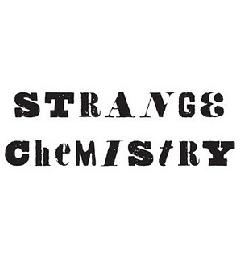
January 29th, 2012
Open Door at Strange Chemistry
Hey everyone– that is, un-agented YA authors.
Looking for an agent? Then Strange Chemistry, a brand new YA publisher, is looking for you! They’re having an open door for aspiring YA sci-fi and fantasy authors. Check it out!
Angry Robot – our adorable but rather cross parent company – ran an Open Door month last year, which proved to be rather successful with, at last count, three debut authors signed off the back of it. We thought to ourselves that we’d rather like a piece of this action too, considering the wealth of talent that must be out there in the YA field. So, we are jumping on their (thankfully roomy) bandwagon and inviting submissions from YA authors. These submissions can be any and all flavours of SF/F!
If you have completed a novel, and are unagented, between April 16th and 30th this year, we’ll happily read it for possible publication. If you are agented, this isn’t for you.
Still here? Good.
This page is full of things you Need To Know. You’ve spent months – or possibly years – perfecting your novel; make sure you take twenty minutes or so to read the guidelines on this page. And by guidelines, we of course mean: instructions carved in stone. Last year we rejected far too many submissions simply because the author did not follow the submission guidelines.
What we’re not looking for:
• Anything other than SF/F. If you’ve written a brilliant contemporary YA novel, that’s great, but not what we’re after. We don’t publish contemporary YA. It HAS to be SF/F.
• Book 2 or later in an existing series.
• Books that have already been published elsewhere (including podcast, self-published as eBooks or print-on-demand).
• Books that have not yet been completed.
• Children’s or Middle Grade books – YA only.
• Anything shorter than novel length (approx 60,000 to 90,000 words, but there is some flexibility in this).So, you have until the end of April to polish your manuscript, and to get it in the right format for us.
Include a single file containing your submission. Do not send multiple files.
We prefer RTF files. Word files are OK, as are PDFs. If you don’t know what these terms mean, ask a tech-savvie friend.
Your file should contain the following:
• Page 1: Your name, your contact details (email address is essential, snail mail address is handy, too), the name of the novel and its wordcount. Feel free to include a brief biography here, if you feel it is relevant.
• Pages 2-3: A full synopsis of the novel, including brief descriptions of the major characters. You must include details of the novel’s ending – no keeping us in suspense until we buy the book off you! Feel free to include a paragraph or two of your intentions/inspiration if you wish (this last bit is not essential). We will also smile on you if you can include a one-sentence summary of your novel, here. Yep – you read that right.
• Pages 4 onwards: The first 5 chapters of your novel. If your chapters are very short, or very, very long, send us no less than 10,000 words, no more than 15,000.Notes on Formatting:
• Single-spaced entries are preferred.
• If your manuscript contains italics, use italics. Do not underline, instead.
• Start a fresh page for new chapters.If you have not followed the guidelines, above, your submission might be rejected without even being read, so give yourself the best chance of success.
The notes above will tell you everything you need to know about submitting your manuscript. IF IT’S NOT MENTIONED ON THIS PAGE, IT’S NOT WORTH WORRYING ABOUT, SO DON’T FEEL YOU NEED TO QUERY THE SMALLEST DETAIL. For instance, if you telephone us to ask what font to use (this has happened) we’re probably not going to want to take your manuscript further.
How to submit.
Come back to this page on April 16th – there will be a special upload thingie here (it’s all very technical, you know).
Do NOT submit anything before April 16th. Anything that comes in early, goes in the bin early…
What we will be looking for:
We’re publishing novels, either standalone or as part of greater series. We’re not looking to publish your novellas, short stories (individually or collected in book form) or non-fiction at this time. Our novels are for YA readers – we do not want adult fiction or middle grade fiction.
All our books are “genre” fiction in one way or another — specifically fantasy, science fiction, horror, and that new catch-all urban or modern fantasy. We are entirely happy if you mash-up any of those genres to create something new.
Our books will be published in all English-language territories — notably the UK, US and Australia — so we’ll be buying rights to cover all those. If you are only offering rights in one territory, we will not be able to deal with you. We will be able to offer e-book and audio versions as standard too, plus limited edition and multiple physical formats where appropriate. We are not contracting any work-for-hire titles; we offer advances and royalties.
Beyond all of this, what we’re really looking for in your writing is this:
• A “voice”, that comes from…
~ Confident writing
~ Pacy writing
~ Characters that live, have real relationships and emotions, even in extreme situations
• A sense of vision, a rounded universe that lives and breathes
• Clever construction and good plotting
• Heightened experience – an intensity, extremity or just a way of treating plot or situation in a way we’ve not come across before. “Goes up to 11″, if you know what that means.We require a brief (two pages) summary of characters, plot and your intentions/inspiration, in that order — plus the opening five chapters. No more, no less. DO NOT send us the opening chapters of your unfinished manuscript – we’re only interested in novels that have been completed. DO NOT send us the full manuscript, unless asked to do so.
Send us the right file, first time. Please, please, please do not send us a submission and then follow it up a few days later with an improved version that you have since edited. Improve it before sending, and send it once.
Your opening chapters will be read by one of our external reading team. If we like what we read, we’ll ask you for the rest of it.
Here is a little FAQ!
You say you want the first 5 chapters. Does that include the prologue I’ve written?
If your prologue is very short, send it, along with the first 5 chapters. If it’s chapter length, send it along with the first 4 chapters.What if my chapters are all very short?
Send us the first 10-15,000 words, or so.What is your preferred overall length for finished novels?
For YA we’re looking for (approximately) 60-100,000, but there is some flexibility in this.My book isn’t really YA, but…
Sorry – it’s not for us, then.If I send my cool contemporary YA novel, you won’t know until you start reading it, and by then you’ll be hooked…
Nah. All that will happen is that we will stop reading the instant we realise you’ve tried to dupe us, and that won’t do anyone any favours. We keep a book, you know. A black one. And we write in it with a red pen…Will I get a response?
Yes. You will definitely get a response, whether it’s “No, thank you – it’s not for us”, “No, thank you – but we’d like to read more of your work” or “Ooh, yes please – just what we’re looking for”.Will I get feedback?
Possibly. Probably not much.How long will it be before I hear from you?
You know – we don’t really know. Last year Angry Robot received nearly 1,000 submissions, and it took 9 months to get through them all. As a general rule of thumb, it generally takes us 3 months or more to respond to solicited manuscripts. Yours might take longer. On the other hand, it might be sooner. You will get a response, though. Feel free to drop us a query if you’ve not heard anything after 6 months.Six months? Seriously?
We never joke about time. Well, not unless we have a really great time-travel comedy, and then we might.What happens if the reader likes my work?
If they like your work, you’ll get a polite rejection. You might even get feedback (but that’s not guaranteed).Ok, ok, Miss Nitpicky – I meant love my work. What happens if they love my work?
If it’s something that fits within the Strange Chemistry brand, and if the external reader adored the book, then they will pass it onto the editor of Strange Chemistry. If THEY love it, then it’ll be taken along to the rest of our acquisitions team. During this acquisitions meeting, we’ll discuss the pros and cons of the book, along with its chances of commercial and critical success, and if the consensus is that we should make an offer, that’s what we’ll probably do.And then I can quit my day job?
Ummm… no. Well, only if you have an independent income stream. Most professional novelists hold down jobs in addition to their writing. At a later stage in your career you may decide to write full time, but we would not advise it at the outset, unless a life of poverty appeals (but hey – great research for your next novel!)You guys are making it sound like the chances of my novel being accepted are really slim…
We wouldn’t want you to submit under falsely high expectations. It’s amazing that you’ve managed to get all those words down in the first place, but the road to getting published is another longer haul, entirely. But if you’re brilliant, it will happen, either with us or another open-minded publisher.So! If, after all that, you’re not put off at all, start getting that novel polished!
Not for you? Well, you still have a little time left to enter this almost-author contest.
Good luck!
I’ll keep you posted,
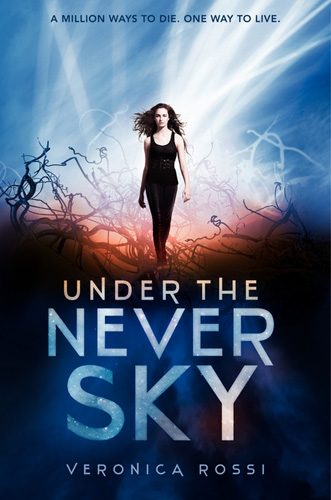
Ana's Rating
Readers Rating
Buy Under the Never Sky on Amazon
Exiled from her home, the enclosed city of Reverie, Aria knows her chances of survival in the outer wasteland–known as The Deathshop– are slim. If the cannibals don’t get her, the violent energy storms will. She’s been taught that the very air she breathers can kill her. Then Aria meets an Outsider named Perry. He’s wild–a savage–and her only hope of staying alive.
A hunter for his tribe in a merciless landscape, Perry views Aria as sheltered and fragile–everything he would expect from a Dweller. But he needs Aria’s help, too; she alone holds the key to his redemption. Opposites in nearly every way, Aria and Perry must accept each other to survive. Their unlikely alliance forges a bond that will determine the fate of all who live under the never sky.
In her enthralling debut, Veronica Rossi sends readers on an unforgettable adventure set in a world that’s harsh but often beautiful.
Every once in a while, you’ll read a book description and melt. You’ll get all excited and feel happy inside, and the weird cover that has nothing do to with the plot won’t even phase you at all. You will buy said book, rush home, and devour it immediately.
Under the Never Sky is one of these books.
Aria’s world is quite arteficial; all civilized people live in enclosed cities. To escape the, well, confinement of these cities, people travel to the Realms; virtual worlds that are, as they say, ‘better than real’ , where there is no pain, risk, or fear.
Perry’s world is a bit simpler. All people who are not living in cities have formed tribes, reverting to an almost animalistic way of life. Their goal is simply to survive. But in the process of their unlikely evolution, many of these Outsiders have somehow developed their senses extraordinarily– to the point of being able to sent emotions and hear things miles away.
After a not-so-accidental accident in her not-very-accident-prone home, Aria is banished from the city of Reverie, and thus, the only life she has ever imagined.
After making a seemingly harmless mistake with not-really-harmless people, Perry has put someone’s life in danger– this person being, quite possibly, the only one he actually loves.
In this collision of worlds, Aria and Perry are forced to adapt, conspire, and stand each other in the short time they both have to earn redemption. Easy, right? Wrong. Very, very wrong.
Especially under the Never Sky.
Rossi’s world building is amazing. I loved the clash of civilization versus freedom, rules versus instincts, illusions versus reality. The tribes, the Croven particularly, were fascinating– not to mention a little creepy. The Aether (although it was never properly explained, which ticked me off), was captivating. Another aspect I really like was the way Rossi described language; she made it sound beautiful without uttering a word: ‘It was Perry’s language but harsher. Edged where it should have been smooth.’
I felt really satisfied with the characters when I finished Under the Never Sky. This is a very rare occurrence, and I feel quite pleased that it was accomplished. I really think that Aria and Perry evolved and came out of most of their prejudices. This being said, I thought that Aria was a true snob when she first met Perry; all she did was complain, bitch, and feel sorry for herself. Quite frankly, I imagined her whining in an English accent. This was very amusing; I do suggest it.
Some other characters I absolutely love include Roar, Cinder, and Liv. Roar is a sort of atypical pretty boy. He’s in love, despite the circumstances, and Perry’s best friend. He’s quite funny… delightful, actually. Cinder is your classic scrawny, skimpy kid… but with a big, bad secret. He is definitely a handful, and I can picture him breaking hearts when he’s older. Oh, yeah! There should be a spin-off series about Cinder, for sure! And as for Liv… well, she isn’t exactly a character in Under the Never Sky… but I hope she is in the next book.
Oh, and Perry, of course! Perry has a very interesting perspective. His philosophies are simple, yet they have huge meanings. He is hardworking, frank, and a man of few words… quite a cute character, if I do say so myself.
Aria thinks he’s cute, that’s for sure. The romance between the two main characters is very well written and realistic. It has verrrrry slow onset– which is great, because it allows the first three quarters of Under the Never Sky to be very action/adventure-y, and the last 25% of it to be believable. I loved how the characters knew the extent of their feelings, but also realized that they had duties and responsibilities that were more important than their emotions. That’s true strength, right there.
As I said before, the only real issue I have with this Under the Never Sky is the science behind the Aether. Apparently, the Aether is some kind of blue, lightning-like energy that flows through the sky, scorching the earth during storms. Since the Unity (Yeah, what is that, anyway?), Aether storms have become more violent and destructive, causing the death of entire tribes… okay, so we’ve got some weird-coloured lightning that kills lots of people. Believable, ain’t it? Especially since we never find out key ideas such as where it came from in the first place.
In order to redeem herself for not explaining the Aether phenomenon, Rossi masterfully explains other technicalities in detail. One of my favourites is her account of a certain part of the brain.
Last but not least, I need to mention the ending. THE ENDING. The freaking ending! Dang, if that’s not a twist, then I don’t know what is. I mean, suspense much?
So, Under the Never Sky merits 4.5/5 stars. This is a post-apocalyptic dystopian that you do not want to miss, lest you be scorched unrealistic lightning. So, shoo! Buy and read!
I’ll keep you posted,

![[Twitter]](http://www.whatyareading.com/wp-content/plugins/bookmarkify/twitter.png)


